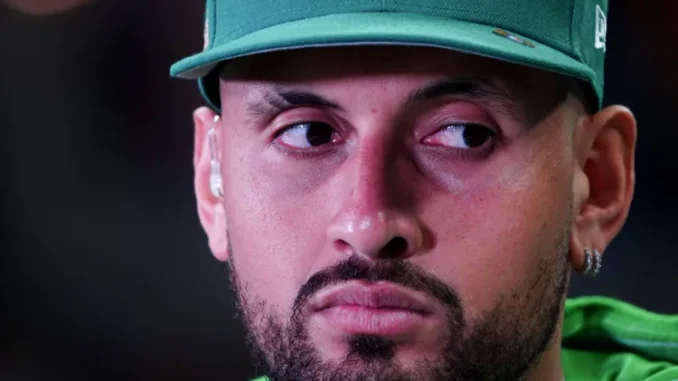
The resolution of Jannik Sinner’s doping case has ignited a passionate debate within the tennis world, with some prominent voices expressing strong disagreement with the outcome. Among the most vocal critics is Nick Kyrgios, whose remarks have added fuel to the controversy surrounding the matter. Kyrgios’s comments center on the perceived leniency of the sanctions imposed and raise questions about the fairness and consistency of anti-doping measures in the sport.
The case involved Sinner testing positive for a banned substance, which led to an investigation and subsequent agreement between the player and relevant authorities. While Sinner maintained that the violation was unintentional, resulting from contamination, the incident has prompted discussions about the degree of responsibility athletes bear for their support teams and the substances that enter their systems.
Kyrgios, known for his outspoken nature and willingness to challenge the status quo, did not hold back in expressing his dissatisfaction. He questioned the plausibility of Sinner’s explanation, articulating his skepticism with a pointed remark: “Am I supposed to believe he knew nothing?” This statement encapsulates a broader sentiment of disbelief that some in the tennis community feel regarding the circumstances surrounding Sinner’s positive tests.
Kyrgios’s critique extends beyond the specifics of Sinner’s case. He has voiced concerns about what he perceives as a pattern of inconsistency in how doping violations are handled within tennis. This perceived inconsistency, he argues, undermines the integrity of the sport and erodes the trust that fans and fellow players place in the anti-doping system.
The core of Kyrgios’s argument revolves around the principle of strict liability, which generally holds athletes responsible for any prohibited substance found in their system, regardless of intent or knowledge. He suggests that this principle, which is fundamental to anti-doping efforts, may not have been applied rigorously enough in Sinner’s case.
Kyrgios’s comments have resonated with some within the tennis community, including other players who have privately expressed similar concerns. These individuals share a belief that any doping violation, even an unintentional one, should be met with significant consequences to deter others and maintain the integrity of the sport.
However, it’s also important to acknowledge that Sinner’s case involved unique circumstances, and the authorities involved considered various factors, including the player’s lack of intent and the specific details of the contamination. The final decision reflects a balancing of these factors within the framework of anti-doping regulations.
The debate surrounding Sinner’s case and Kyrgios’s remarks highlights the complexities of anti-doping in professional sports. It underscores the ongoing tension between the need to punish violations and deter future offenses, and the recognition that circumstances can vary significantly from case to case. As tennis continues to grapple with these issues, the voices of players like Kyrgios will undoubtedly play a crucial role in shaping the conversation and influencing future policies.
Leave a Reply